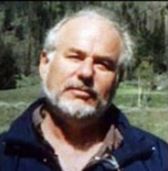 Philosophy often seems to be a subject that floats above our heads and lacks relevance to our daily lives. For the anthropologist and philosopher Thomas de Zengotita, philosophical understanding is urgent. Today, he observes, the cultural conflicts that we are in the midst of are directly related to a rather obscure set of philosophical arguments that can be grouped under the heading “postmodernism.” Zengotita would go so far as to say that the conflicts of our times center on the strengths and weaknesses of postmodernism. Postmodernism, for example, argues that truth is relative, depending on one’s perspective. Is it the fault of postmodern philosophy, then, that so many people so easily dismiss news as fake and no longer believe that there is truth at all? Or could postmodernity have anticipated the new media reality that we all are living in, where we all become performers in a a big global contest for attention?
Philosophy often seems to be a subject that floats above our heads and lacks relevance to our daily lives. For the anthropologist and philosopher Thomas de Zengotita, philosophical understanding is urgent. Today, he observes, the cultural conflicts that we are in the midst of are directly related to a rather obscure set of philosophical arguments that can be grouped under the heading “postmodernism.” Zengotita would go so far as to say that the conflicts of our times center on the strengths and weaknesses of postmodernism. Postmodernism, for example, argues that truth is relative, depending on one’s perspective. Is it the fault of postmodern philosophy, then, that so many people so easily dismiss news as fake and no longer believe that there is truth at all? Or could postmodernity have anticipated the new media reality that we all are living in, where we all become performers in a a big global contest for attention?
For the past few decades, Zengotita has been working and writing to find a way beyond postmodernism. Long before Facebook, he wrote Mediated: How the Media Shapes Your World and the Way You Live in It, anticipating by a decade the downside of our mediated social reality. His latest book — for the hardcore philosopher — is Postmodern Theory and Progressive Politics: Toward a New Humanism, which will be published by Palgrave in 2019.
In Radio evolve this week, Thomas Steininger speaks with Thomas de Zengotita about the deeper challenges of our time that we have to face if want to find a way beyond relativism to something like a new universal humanism.

